






With more than 25 years’ experience, Molgas Energy is an industry-leading provider of liquified natural gas. Commercial Director UK David Ballantyne highlighted the company’s crucial culture of safety and gave insights into its latest investments, in a report by Imogen Ward.
Discussing the impressive characteristics of LNG, Commercial Director UK David Ballantyne said: “Liquid natural gas takes up 600 times less space than natural gas. Which means, a natural gas company would need 600 tanks to deliver the same amount of energy as one tanker of our liquid natural gas. That’s a huge difference.”
Thanks to parent group, TRANSMOL, Molgas has learned from almost 50 years’ worth of energy-based experience. Starting as a diesel, petrol and LPG distributor, the company eventually diversified into the LNG market. Since then, the Spanish-based company has not looked
back, with year-on-year growth. In 2016 Molgas opened a division in the UK, and entered the Irish market two years later.
With a focus on three areas – industrial , shipping and heavy goods transportation – Molgas has developed a crucial LNG infrastructure.
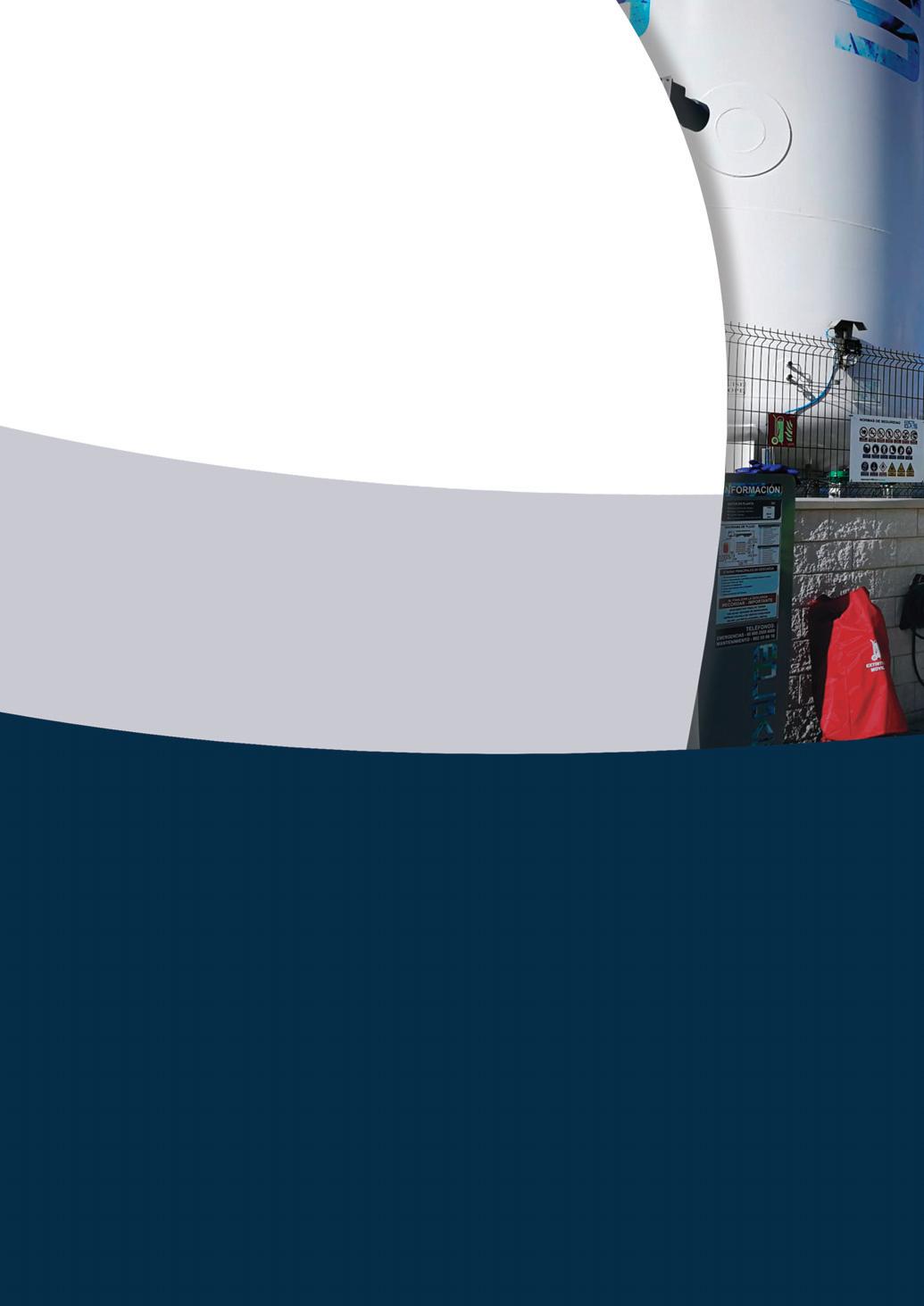
In hopes of providing a widespread comprehensive service, Molgas has invested heavily into a large network of refuelling stations across Europe. With a handy interactive map on Molgas’ website, customers can easily work any of the 250 plus stops into their planned
journeys. This figure is set to expand further, with the company always looking for new investment opportunities. Just last year, Molgas acquired 24 LNG and CNG stations f rom Air Liquide in France.
Molgas appreciates how frustrating filling up can be for drivers journeying across multiple countries. With fuel cards a popular choice amongst many companies, it can be stressful trying to locate stations within the fuel card network – often requiring customers to sign up to multiple cards. Eager to find a solution to this, Molgas created its own affiliate card.
“Our card can be used at any Molgas station – giving the customer refuelling options in eight countries, including Spain,
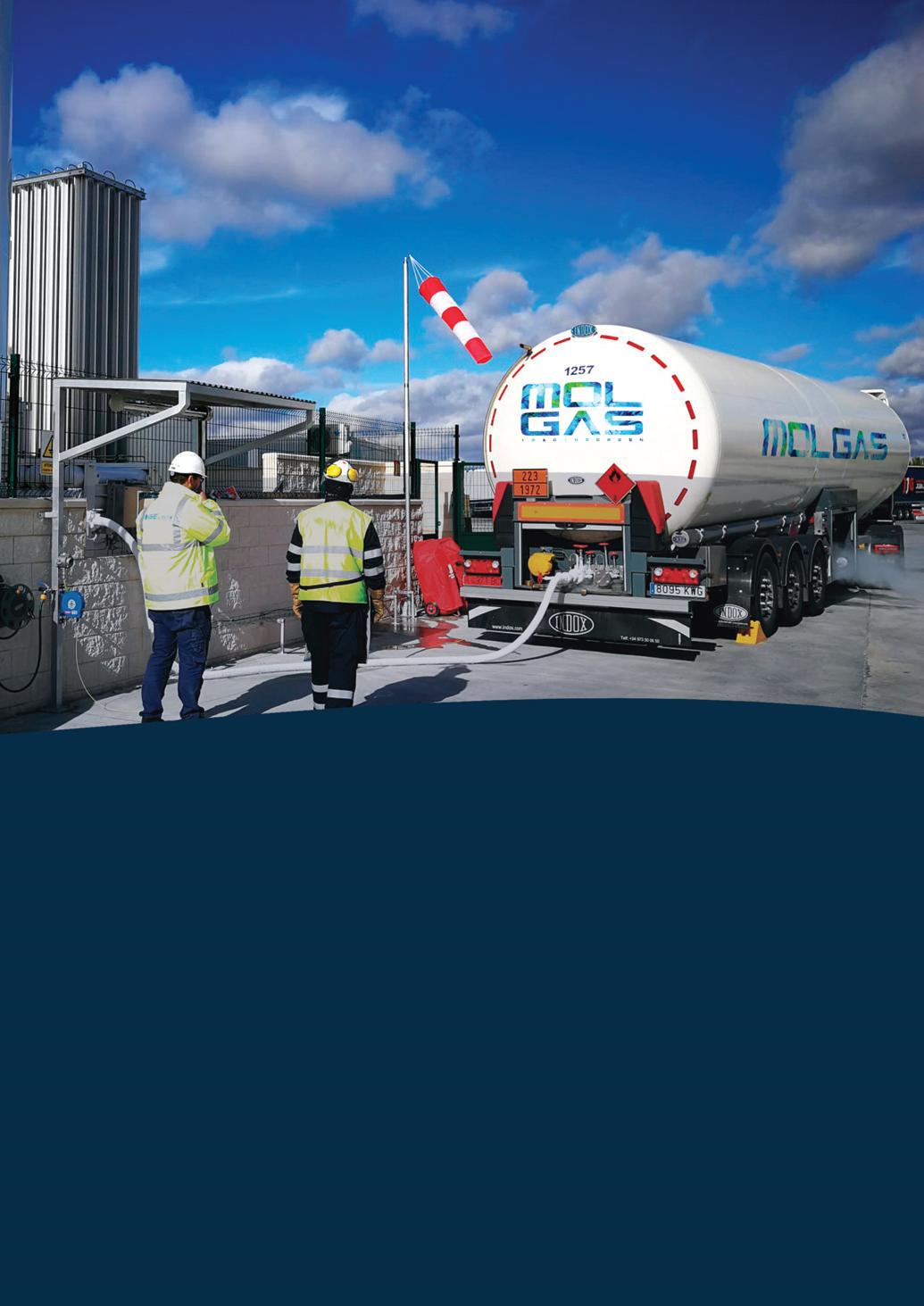
Portugal and Greece,” Mr Ballantyne said. “Making refuelling simpler is one of the biggest benefits we can provide to our customers. The question we get asked most by prospective clients is whether we have the infrastructure to allow refu elling across Europe. We can provide them with that card and give them access to almost 300 stations throughout the continent. Ultimately, that’s a huge advantage for them as the ease and comfort of their HGV drivers is essential.”
As a prominent provider of integrated LNG infrastructure, the company has installed several satellite plants for companies that have no access to natural gas supplies.
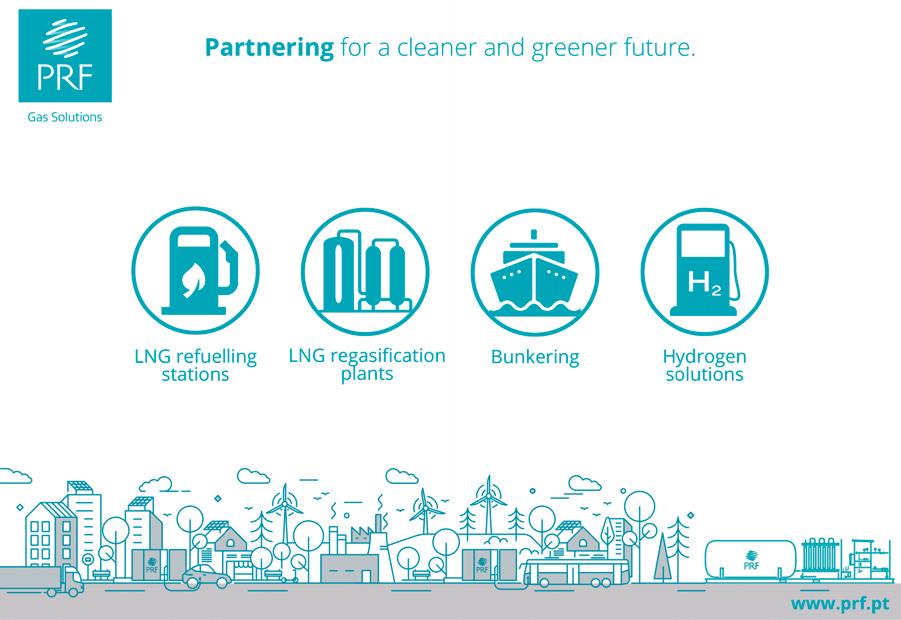
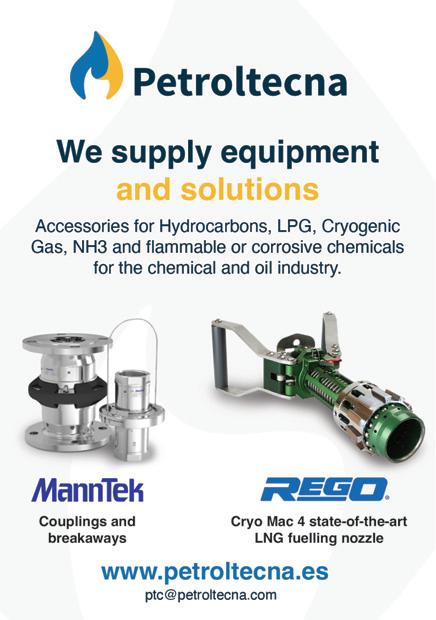
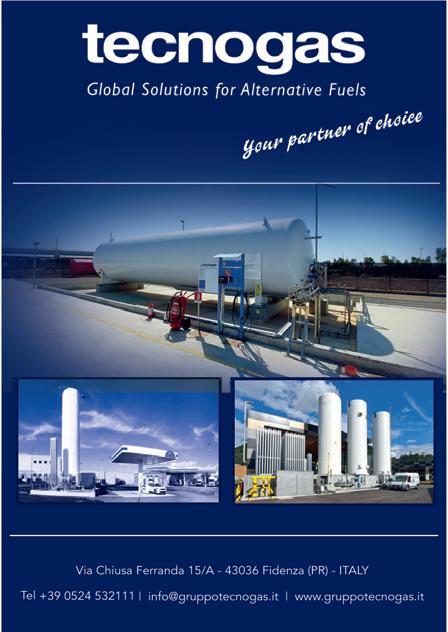
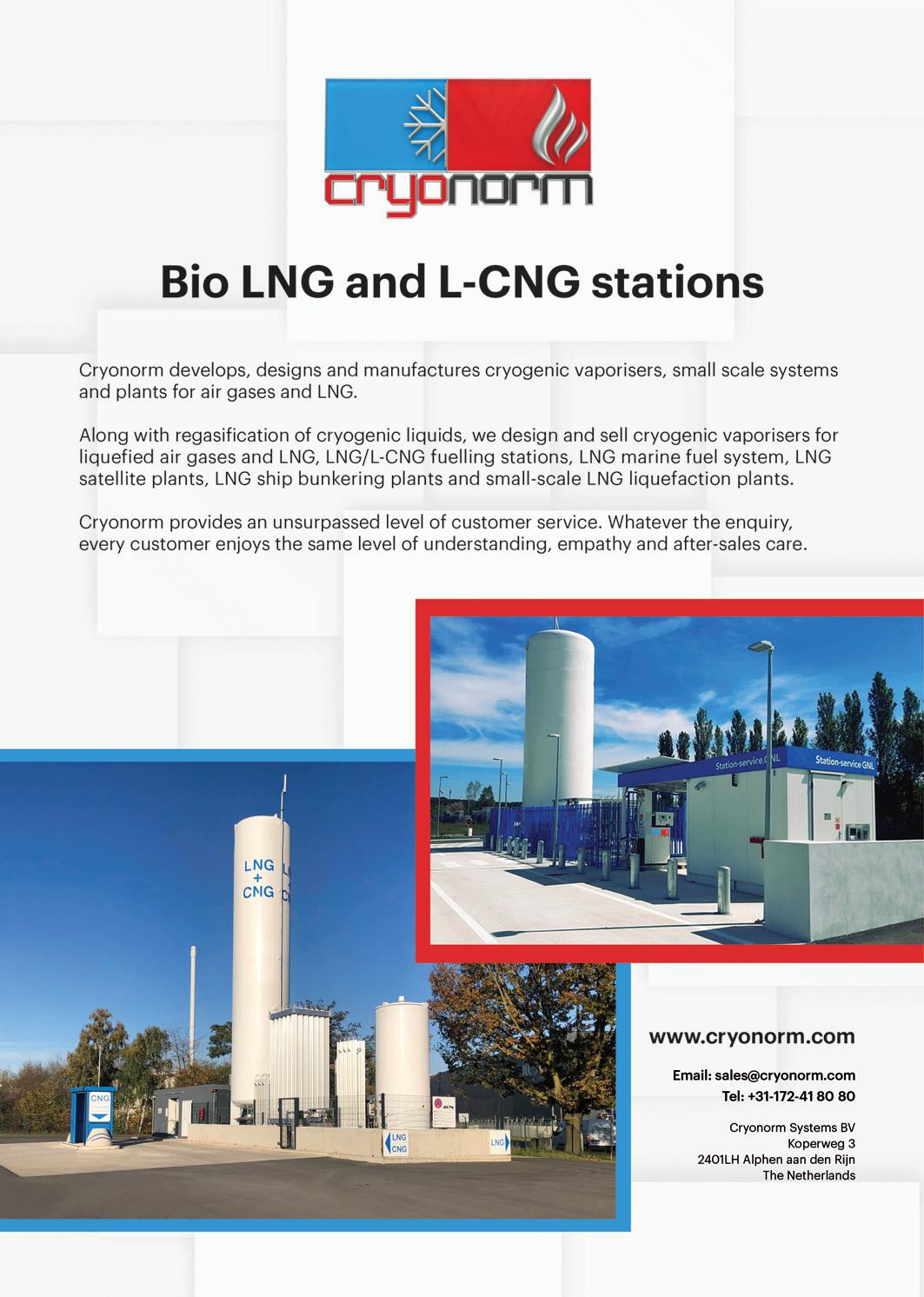
“One of our customers in the South of England grows strawberries in about 11 acres of greenhouses,” Mr Ballantyne said. “He doesn’t have access to natural gas, so we installed an LNG tank at his farm, and now, we fill it up on a bi-weekly basis. This gas then runs through our r egasification unit to heat the greenhouses. Because of our tanks, that customer can now grow his crops throughout the year, regardless of the weather.”
The transportation of LNG is quite complex. Due to the nature of the gas, it requires high temperatures and is highly pressurised. With safety number one at Molgas, the company has an entire fleet of HGVs to ensure the gas is always delivered as safely and efficiently as possible.
“We have our own fleet of LNG-powered heavy goods vehicles in Portugal, France
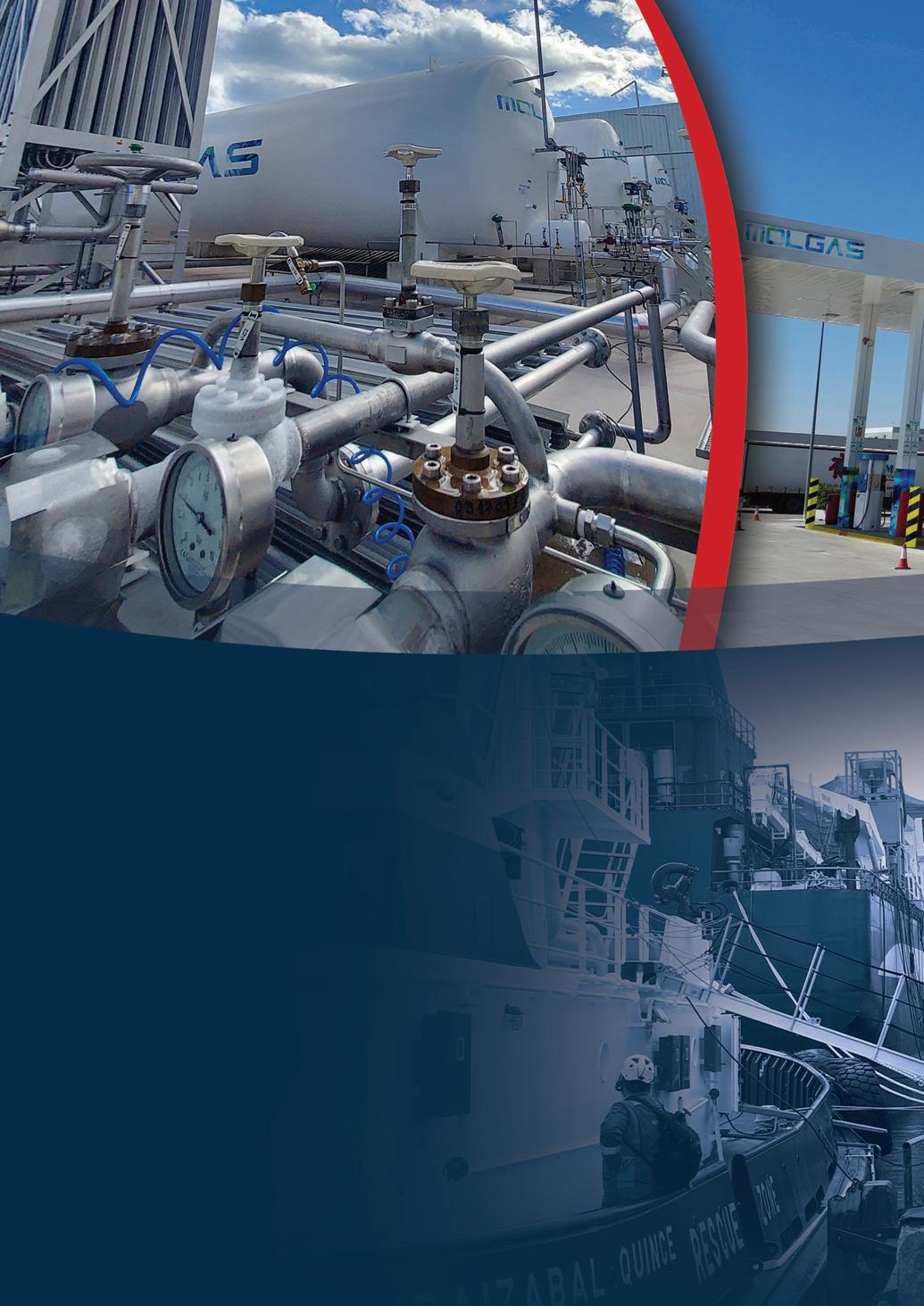
and Spain,” Mr Ballantyne explained. “We anticipate that by the end of 2023, our entire fleet of 200 trailers and LNG tankers will be run on LNG.”
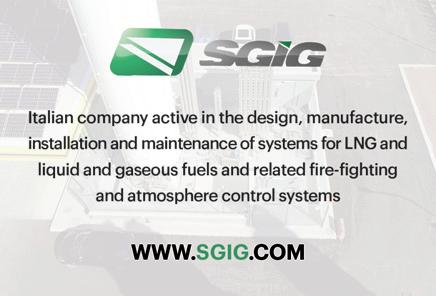
Continuing its vision for growth, Molgas has made several big investments in the last three years. In 2021, the company entered the Norwegian market through the purchase of Gasnor. Formerly owned
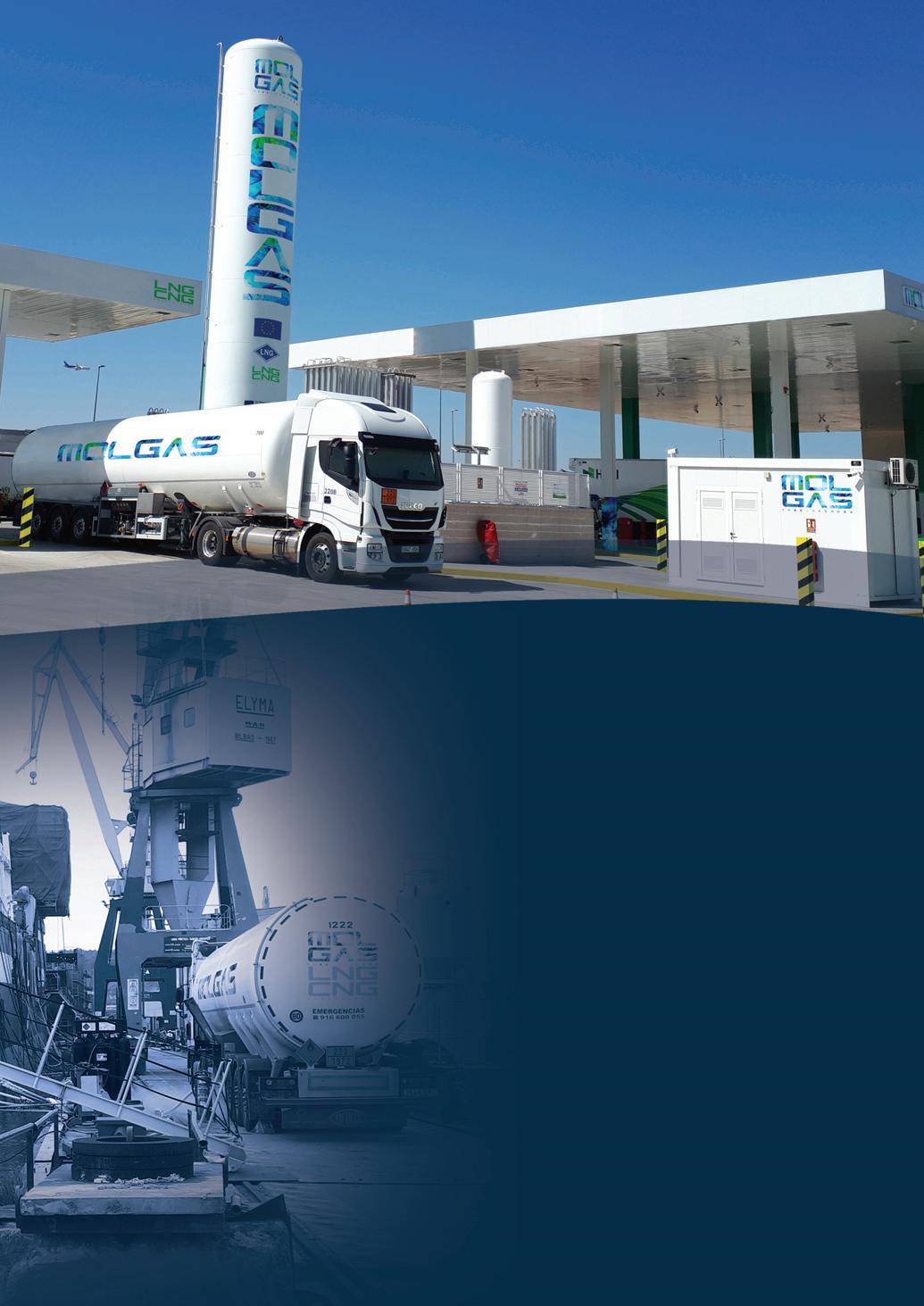
by Shell, it is Norway’s largest gas company. Following the success of this investment, Molgas made a further acquisition, adding Blue Grid (the leading Greek clean energy supplier) to its portfolio.
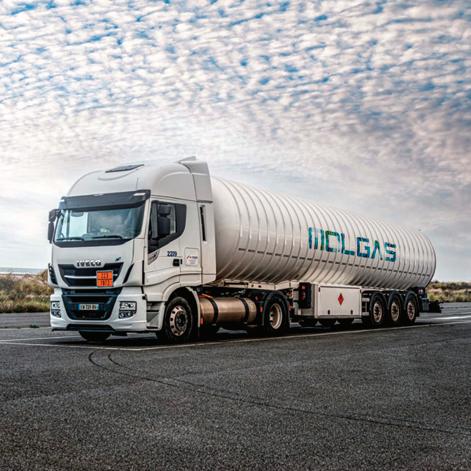
“Through these acquisitions, we have cemented our position as a comprehensive LNG service provider,” said Mr Ballantyne. “This was a very strategic move for us. Initially hoping to grow our presence in these markets, it became clear that acquisition was the best course of action to achieve that.”
Molgas is currently in the process of integrating both these energy companies under its name, taking the time to ensure a smooth
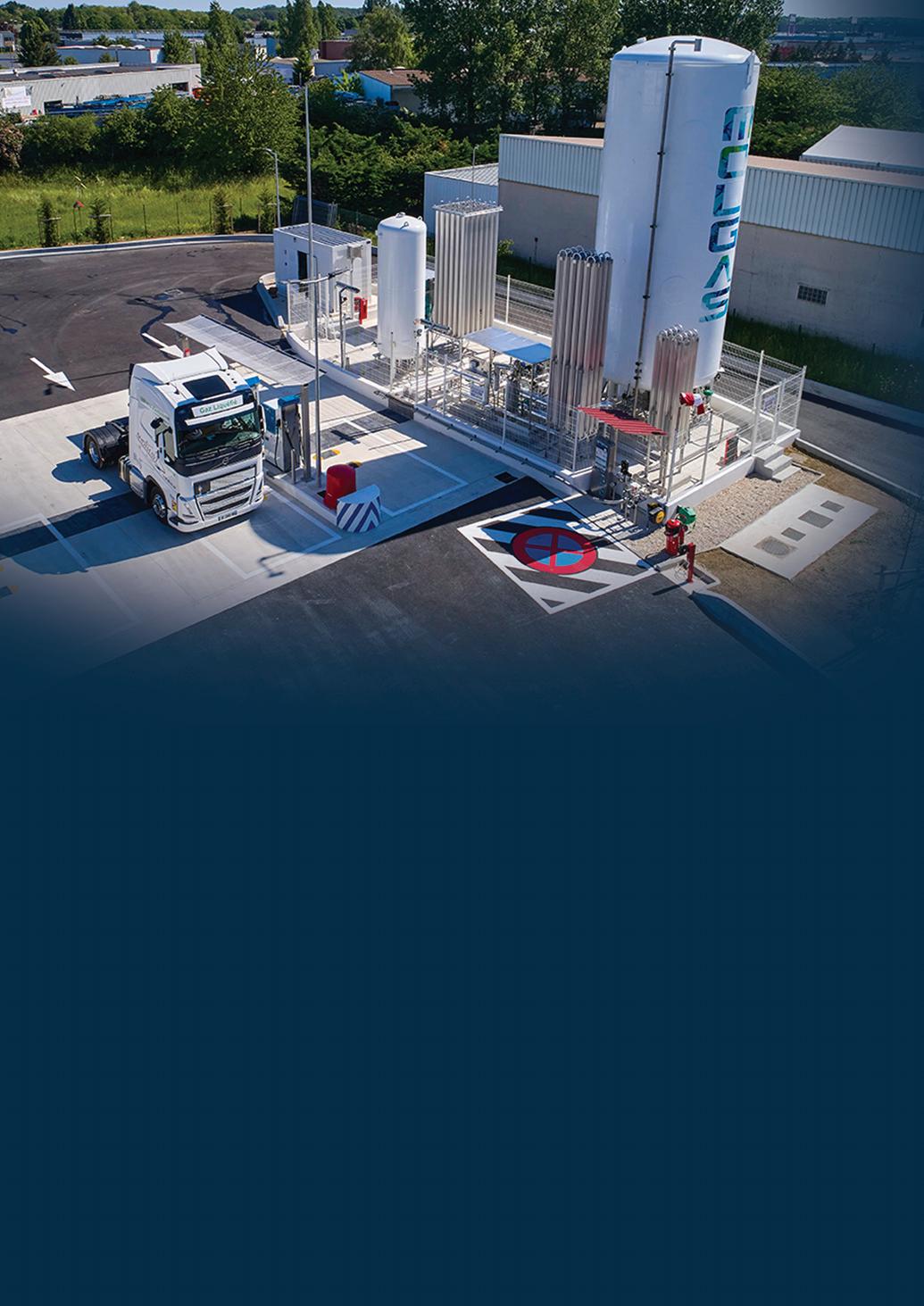
transition process for all involved. “We are taking the time to get to know everyone, which I think is a really important part of the process,” said Mr Ballantyne. “It’s all very exciting, and the owners of these companies really are top-notch people.”
The company has also expanded its presence in the maritime market, signing a contract with CalMac Ferries in Scotland. In line with this agreement, Molgas will supply LNG for two brand-new vessels –the first of which is expected to launch later this year.

Safety is hugely important to everyone at Molgas: starting at the very top, employee wellbeing is always put first.
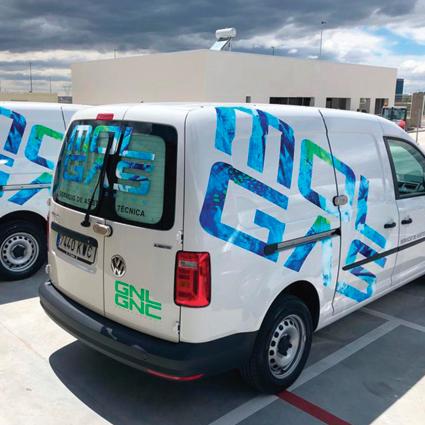
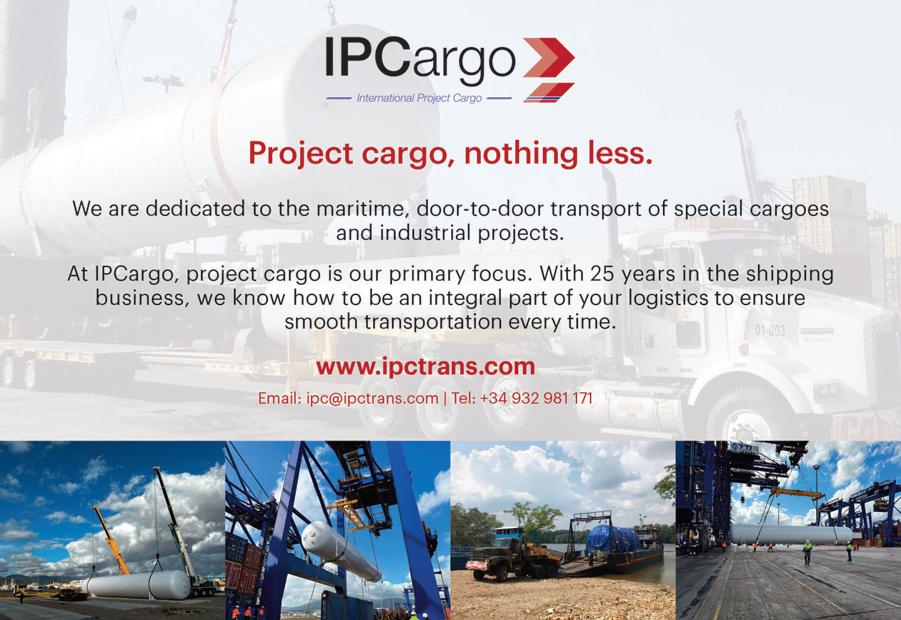
“We have a very strong safety culture at Molgas, which has been driven forward by the CEO,” said Mr Ballantyne said. “We have a safety committee available for every country: the European and Scandinavian committee now has 26 members who meet once a month on Teams to run through the current safety agendas and share information.”
Every angle is considered when maintaining this safety-conscious
environment. With a focus on the greater picture, Molgas also has an awareness of its carbon emissions. LNG itself is a cleaner alternative to diesel, but as far as the company is concerned, the LNG plants have room to become greener.
“The engineering side of the company is extremely clever,” Mr Ballantyne commented. “They are currently researching into new technologies that
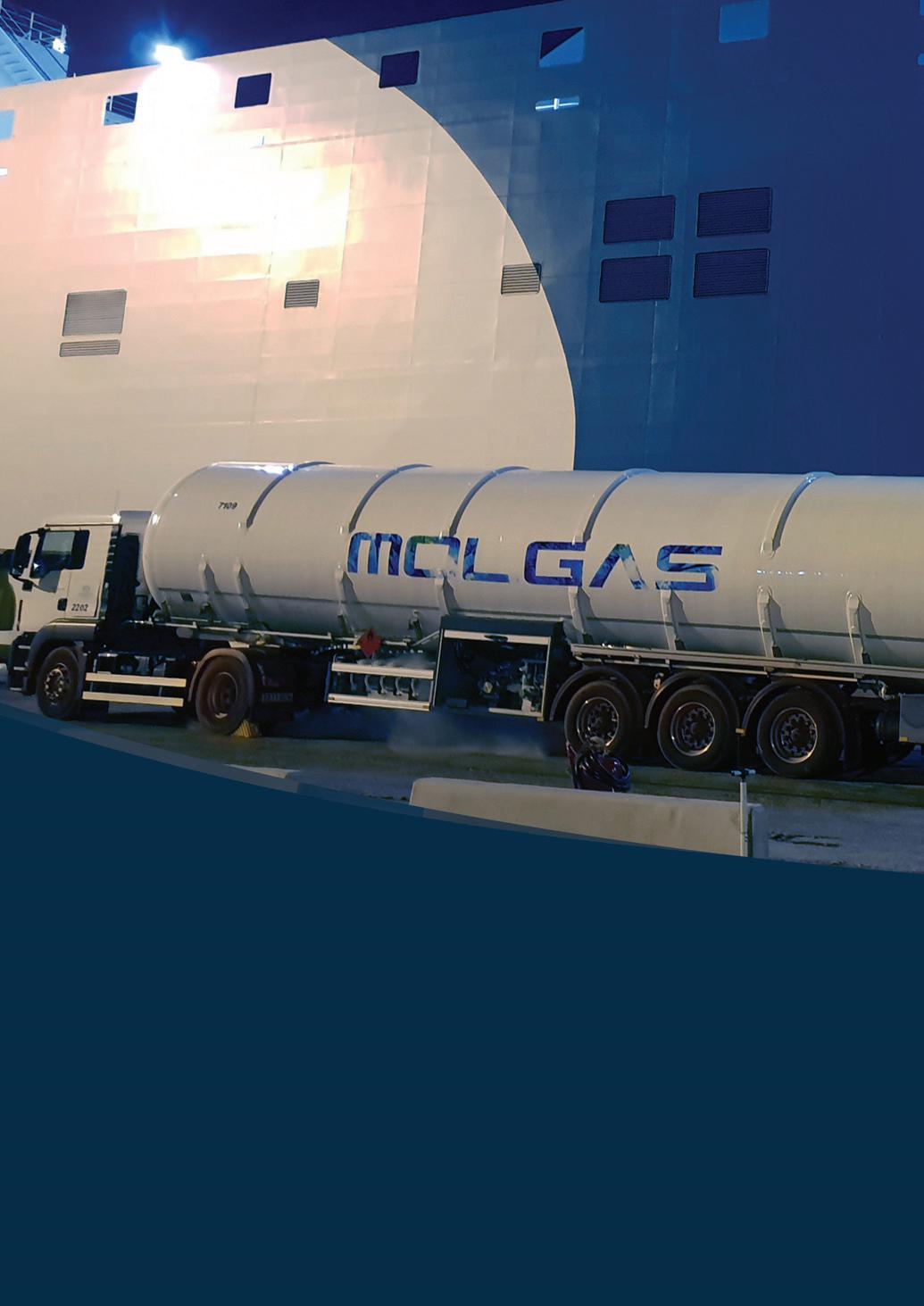
will make our LNG plants carbon neutral. Having emissions-free LNG plants will improve our environmental impact, make us more efficient and help secure the future of the planet.
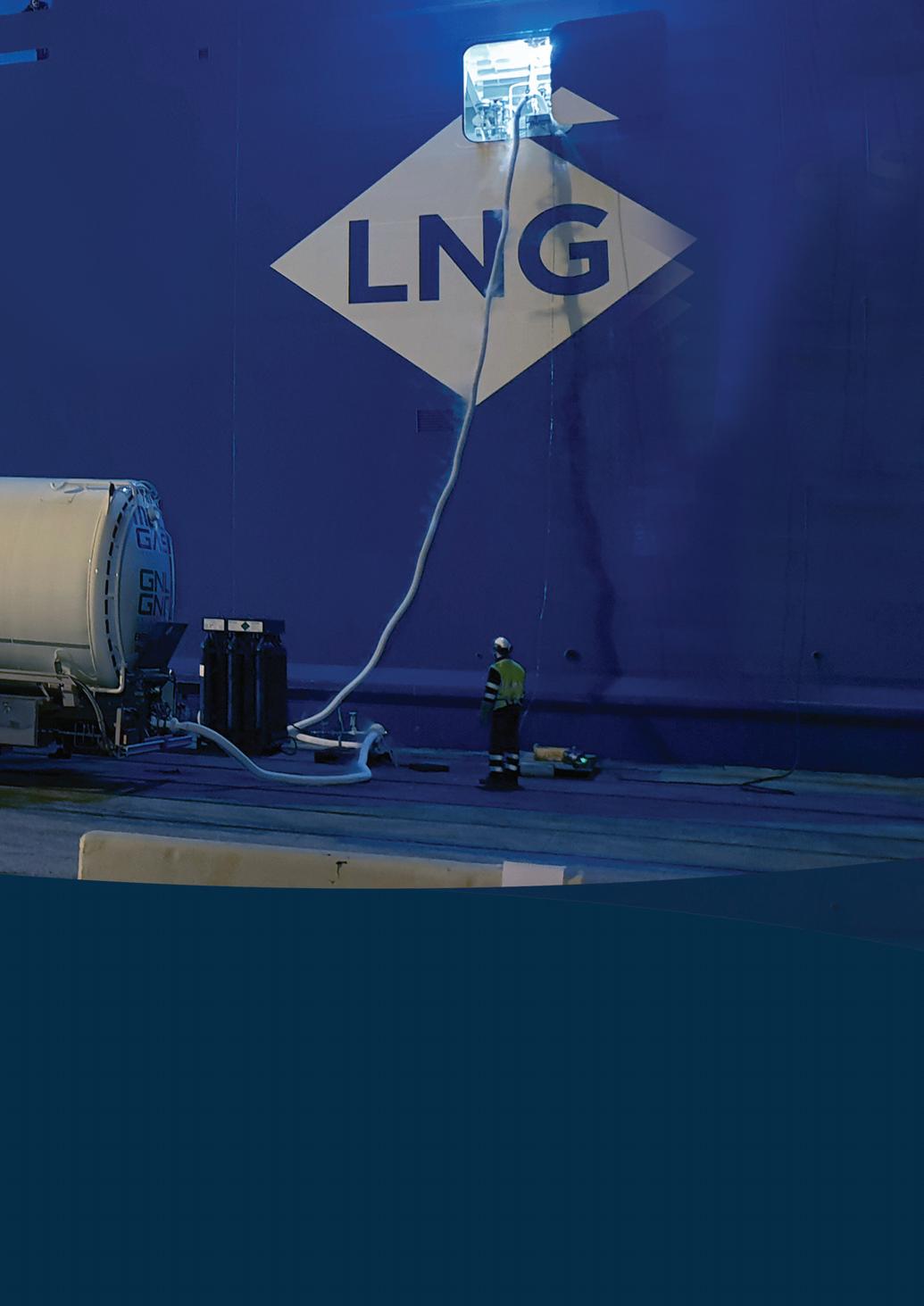
“The company is always happy to invest, especially if it leads to improved employee safety,” he concluded. “The culture here doesn’t just account for physical wellbeing. Like any company, we must commit to time frames; how -
ever, Molgas is happy to extend those frames if it means our employees are under less stress. I think that’s a very sensible way of looking at it, but also, it’s actually quite clever.
“Unrealistic timings can lead to failure and, ultimately, demotivate the workforce. By creating an environment where our colleagues feel like they can be honest, we are also ensuring our own success.”
